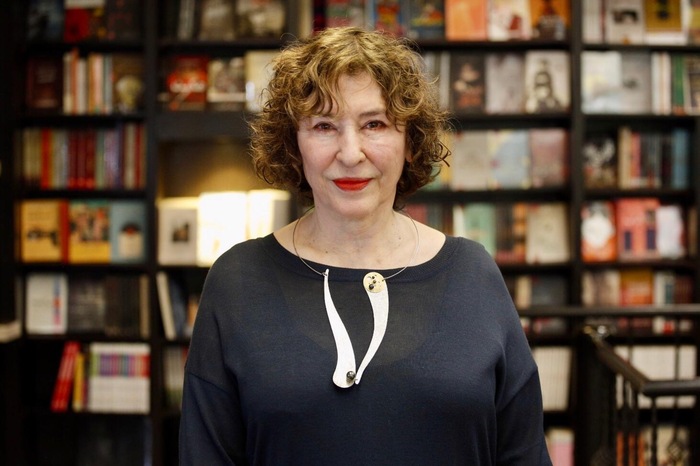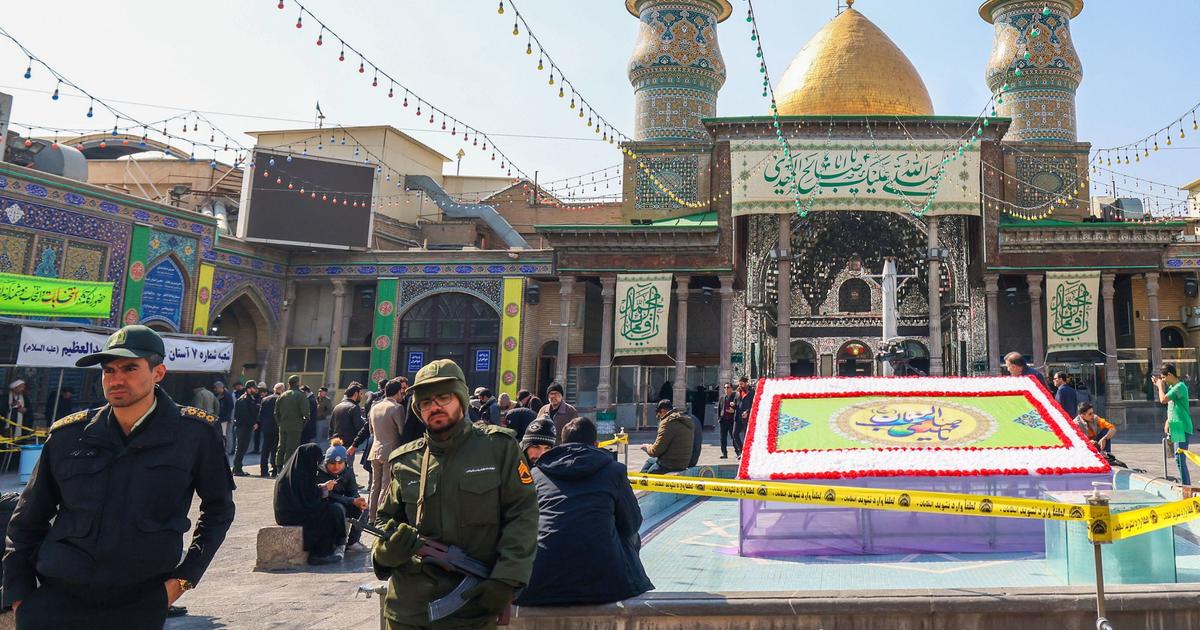Enlarge image
protests in Iran
Photo: AP
I was born in Tehran.
1977. The first sentence I could speak was "Death to the Shah!" I think I can claim to be a child of the Islamic revolution.
A revolution of grand gestures and symbols, of pathetic heroism, of the cult of martyrs.
A revolution from the time of big ideas, of collective solutions.
Not only the religious brought all this with them, but almost all groups.
Liberal was considered a swear word, anyone who had reservations was considered cowardly.
Anyone who tried to differentiate themselves was quickly seen as a traitor.
As duplicitous, and was well advised to flee.
Attitudes that not only the religious forces brought with them, but everyone.
So it was a revolution that arose from a society without a centre.
A revolution that was replaced as a source of meaning and identification by the subsequent eight-year war that Saddam ushered in with his attack on Iran.
During the revolution, young people in shrouds opposed Shah's security forces, during the war they threw hand grenades under Saddam's tanks or ran across minefields to open aisles for the advancing troops.
We left Iran in 1986. I lived through this war for six years.
So I am also a child of hysteria.
Not observers, but ambassadors of a nation
My uncle was an artist.
He said, "If society is a body, then artists and intellectuals are the eyes and brains of that body." I was ten.
The picture was simple enough.
And if true, the Iranian body had just started ripping out its eyes, decapitating itself.
A look at the
brain drain
figures for the years that followed proves him right.
One of the many sad categories in Iran among the leading nations.
But the head grew back.
And he grew differently.
He was free from ideology.
He was younger, more feminine, more connected, more global, and at a critical distance from the old, exiled head.
Not alien to the rest of the body.
Society now formed a center.
She had a name for the exiled intellectuals.
"Fossils".
Buried, petrified remains from a buried time.
Under the actual world.
Buried with their collective solutions, with their misjudgments, their hysteria.
It should not be forgotten that foreign journalists have had very limited access to the country for more than forty years.
And the Iranians who went into exile not only brought with them their traumas, their wounds and their humiliations, they also had a mission that derives from those same humiliations.
They saw themselves not as observers, but as ambassadors of a nation they would understand less from now on, to about the same extent as they began to understand the land of exile.
As noble as the project, for the free press that they wanted, they lacked one important prerequisite: neutrality.
The grasp for freedom
Iran is no longer the country the Shah left behind with an illiteracy rate of nearly 80 percent.
It is a country that has better infrastructure than most Eastern European or South American countries.
Today's Iran produces racers, astronauts, pilots and, in Maryam Mirzakhani, the first woman in the world to be awarded the Fields Medal for Outstanding Discoveries in Mathematics
.
Iranian society is a well-educated one, with more than seventy percent of university graduates being women.
They occupy top professional positions.
Accordingly, they dare more.
Dare more.
Also the grasp for freedom.
A freedom that means above all the absence of collective solutions.
About the dominance of an idea of morality, of the goal and the way.
A freedom that is not achieved with the abolition of the obligation to wear the veil, but with the fall of the regime.
When I write these lines, I do so without admitting that my connection to society there is also lacking.
That I, too, live behind a wall that surrounded the country when we were still here.
I read Iranian newspapers, opposition blogs, occasionally watch Iranian television, find out what is happening on the other side of the wall.
And if I would like to criticize something, it is that this wall, this lack of access, is not discussed when journalists and supposed experts write about what is happening in the country.
Events that have always surprised her.
With forecasts that have never come true.
And I want to say something about the hysteria.
During the Green Revolution, the opposition had at one point
more than four million people in Tehran on the streets, and Mousavi has sent them home to de-escalate.
By this time, a majority of the Iranian exiles were fueling the explosive atmosphere and calling for an overthrow, the price for which they did not pay themselves.
Sending the millions home was seen as a strategic mistake.
Especially among exiles.
In Germany, however, among other things, as a degree of maturity of civil society.
No hysteria, no pathos.
The high value of the individual, the integrity of the individual.
Not a martyr cult.
I firmly believe that the Shah had to go then.
But I have a modicum of respect for him for not killing as many people as he could.
Unlike the Shah's generals and officials, who were free to live in Los Angeles, London or Switzerland, the current regime's henchmen are unlikely to have any doors open.
Maybe not even Lebanon or Iraq.
I think it was Navid Kermani who wrote that there are people in Iran who say that not very many have been killed so far.
And they are not cynics, but realists.
People who believe that today's officials might be able and willing.
And we don't know what they'll do when their backs are against the wall.
But I'm also afraid of the hysteria when I hear people screaming, 'This is the Year of Blood.
Seyyed Ali's (Khamenei's) downfall is sealed!' I don't believe – and the same can be said from this side of the wall – that a society can progress by hanging the 'right' ones on the gallows.
My uncle now posts instructions on how to make Molotov cocktails on Instagram.













